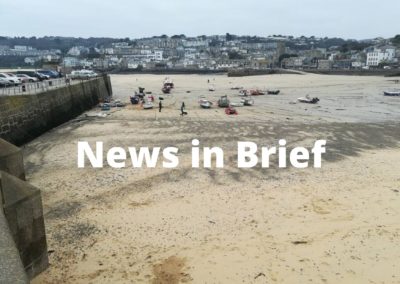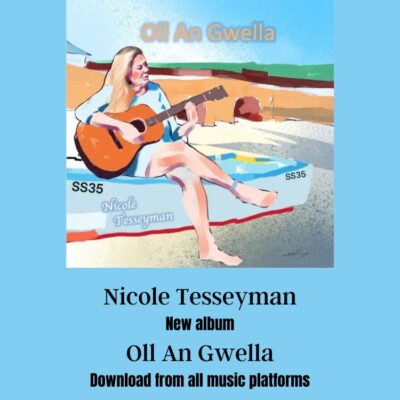by Emma Fashokun, manager of the Cornish Gems Coffee Lounge
While we’ve all been socially distancing and staying at home, one of the recurring subjects of news stories during this pandemic has been the environment.
Scientists and medical researchers are publishing reports of reduced air pollution, plummeting toxic fumes, and reduced asthma-related admissions to hospitals. This is an unsurprising result of road traffic being reduced by 70% in the initial stages of the lockdown. Although in Cornwall we are less affected by air pollution than cities like London and Manchester, according to the Environmental Protection arm of Cornwall Council, we do regularly have hotspots that fail to meet national air quality minimum standards.
Our verges and hedgerows are expected to be resplendent with more wildflowers this summer, as a consequence of a reduced rate of mowing and clipping from councils. As part of efforts to keep roadsides looking tidy, wildflowers are often cut down in the spring before they get a chance to bloom. Of course, having more flowers will benefit bees, birds, and butterflies too!
Inevitably, in the absence of the thousands of visitors who would have been buying take-aways, picnicking on the beach, and playing in the surf and sand, we will also have seen a reduction in the amount of plastic debris that blights our landscape and pollutes our sea. As a Plastic Free committee we would remind local businesses that they too can play their part and refuse to sell single-use plastic items, such as polystyrene bodyboards. Keep Britain Tidy collected hundreds of these last year from Cornwall and Devon’s beaches. As the charity points out: “When the bodyboards snap, they often unleash hundreds and thousands of miniature polystyrene ‘balls’ into the marine environment, posing a direct threat to wildlife.”
According to Surfers Against Sewage, there are an astonishing 5,000 pieces of marine plastic pollution per mile of beach in the UK. Every time we re-use a bottle instead of buying a disposable one, that is one less piece of plastic heading for landfill, or even worse, our beautiful coastline. Don’t forget: you can utilise the new free water filling station on the side of the lifeboat house in St Ives.
Of course, the reasons for this upsurge in environmental health has been the spread of an awful virus taking lives and impacting livelihoods. As a county, we depend on tourists so that our businesses and families can thrive. We will all have to make adjustments when it is safe to re-open, to control the spread of the virus and look after our frontline staff. Wouldn’t it be something, though, if we could prioritise replicating these benefits to our environment, and enjoy cleaner air and less pollution after the virus has gone?


